Fire & Song: The Story of Lohri

Lohri celebrates the winter solstice, paying homage to fire, warmth, and the sun god, Surya. Radhika Oberoi writes about Lohri, folk songs about a bandit, and celebrations in her Punjabi family.
She was a mighty flame, my grandmother. Mightier than the bonfire that we lit in the driveway of our home on Lohri every year. Her body – a bundle of old bones and translucent skin laced by a rivulet of veins – was trapped in a wheelchair the year she died, a few weeks after what was to be her last Lohri. But her spirit remained feisty. I almost saw it swirl upward in the winter smog, chasing the holy blaze as it jumped and arched into the night sky, as though Sundar Munderiye, the folk song about the bandit Dullah Bhatti, still rang in her ears from the Lohris of her youth; as though the fistfuls of til, gurh, moongphali and popcorn, crackled for her in the famished fire.
Lohri marks the winter solstice. In India’s northern states, particularly Punjab, the festival celebrates the end of the cold season and coincides with the movement of the sun to the northern hemisphere. Lohri is usually observed on January 13, a night before Makar Sankranti. The colossal bonfires that mark the festival give thanks to the sun god, Surya, for warmer days to come. Folklore shrouds the significance of the festival, even its etymology. According to an unverified but charming account, the word ‘Lohri’ is believed to be a derivative of Loi, the name of the wife of the 15th century mystic poet and saint, Kabir. Another suggests Lohri is derived from the word ‘loh’, the warmth that we associate with fire.
The story of the bandit Dullah Bhatti – whose song my grandmother sang with gusto for years, until speech abandoned her – is perhaps the only reliable narrative associated with the festival. Dullah Bhatti, or Abdullah of Pindi Bhattian, Pakistan, was a bandit of historic importance. He lived during the reign of Mughal emperor Akbar, led a band of peasants that resisted Mughal expeditions to capture Pindi Bhattian, and refused to pay taxes or land revenue. In 1589, Akbar returned from Kashmir to Lahore, where he had lived for nine years, to safeguard the northern borders from Punjab peasantry. Indian peasants in the Indus region were exploited and miserable, subject to arbitrary taxes imposed to sustain military campaigns and an extravagant court life. On the threshold of revolt, they were only waiting for a leader.
The ballad celebrating Dullah’s bravery, rendered lustily by my grandmother around the Lohri bonfires of her younger days, sang praises to the bandit for protecting the women of Punjab from Mughal zamindars.
Sunder munderiye ho!
Tera kaun vichaara ho!
Dullah Bhatti walla ho!
‘Beautiful girl,
Who will remember you?
Dullah of the Bhatti clan!'
Sung to the ambient noise of a fire hissing with offerings of til, revri and moongphali, the ditty was like a Pashmina shawl – finely woven, promising protection, promising warmth and beauty, to all who wore it.
The til, revri, moongphali and all the little treats one flings into the Lohri fire are eternal motifs of the bounties of the earth, and of the blessings gathered by children. Lohri in Punjab is also a celebration of the winter harvest, in particular, sugarcane. A few days before Lohri, children in the towns and villages of Punjab collect nuggets of gurh, groundnuts, grain and other insignias of nature’s plenitude and the farmer’s toil, from homes in the neighbourhood. These collections are then offered to the ravenous communal fires. Sheaves of newly harvested corn are roasted and eaten. Popcorn, that flippant snack of teenagers in multiplexes, acquires the gravitas of an offering to the flames. Gajak – discs of sesame and peanut held together by the thick adhesive of gurh – is also staple Lohri fare, passed around in thalis from one relative to another, held between the sticky fingers of a toddler, chewed with relish by dentured jawlines.
‘Ask the fires for anything,’ my grandmother would to say in Punjabi, as we circled the bonfire in our driveway, gathering our silks, Pashminas and Jamewars close, careful not to get too close to the fire that danced its own giddha. Greedily, we whispered our wish-lists: sprawling homes, endless travel, spouses, babies, an inheritance. Greedily, we asked for things, every single year, like the spoilt offspring of a blazing parent. This year, maybe I will ask for her imminent return. But I know she will be there on the night of Lohri. She will be there, in the beat of the song, in the heat of the bonfire, in the fistful of gurh and moongphali that will sizzle when it is consumed by the flames of Lohri.
Radhika Oberoi is writer from New Delhi, where she worked in advertising and told stories within the confines of an A4 print ad or a 30-second television commercial. She now prefers untrammelled spaces for her stories, and longer meals to share them over. Follow her @hypermonk.
Illustration by Tasneem Amiruddin.
YOU MAY ALSO LIKE
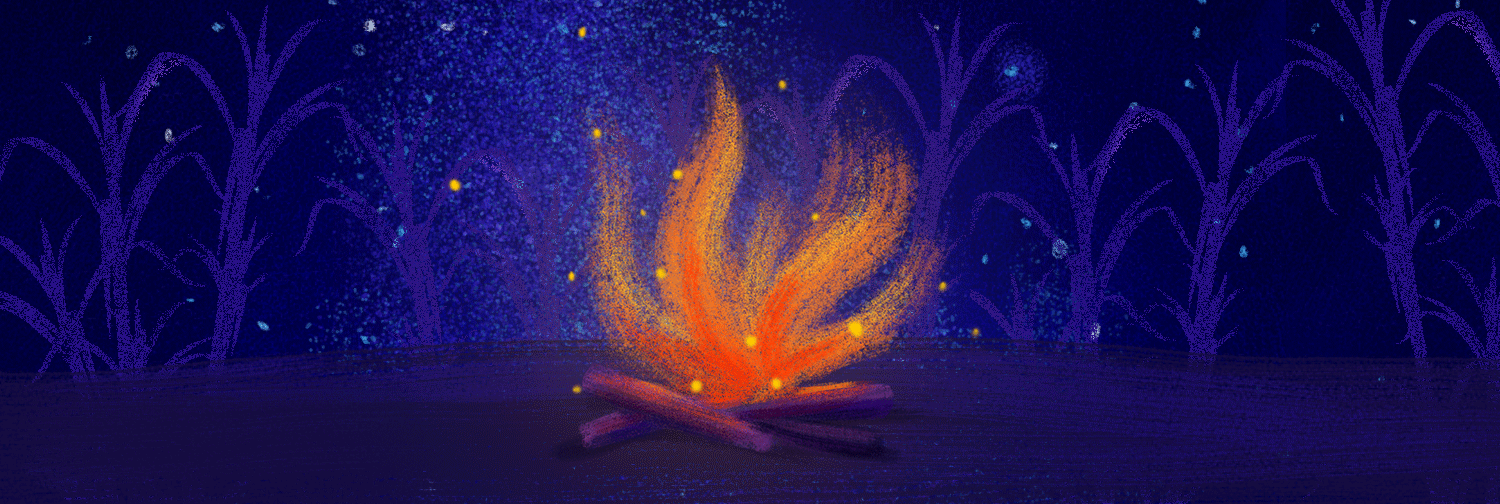
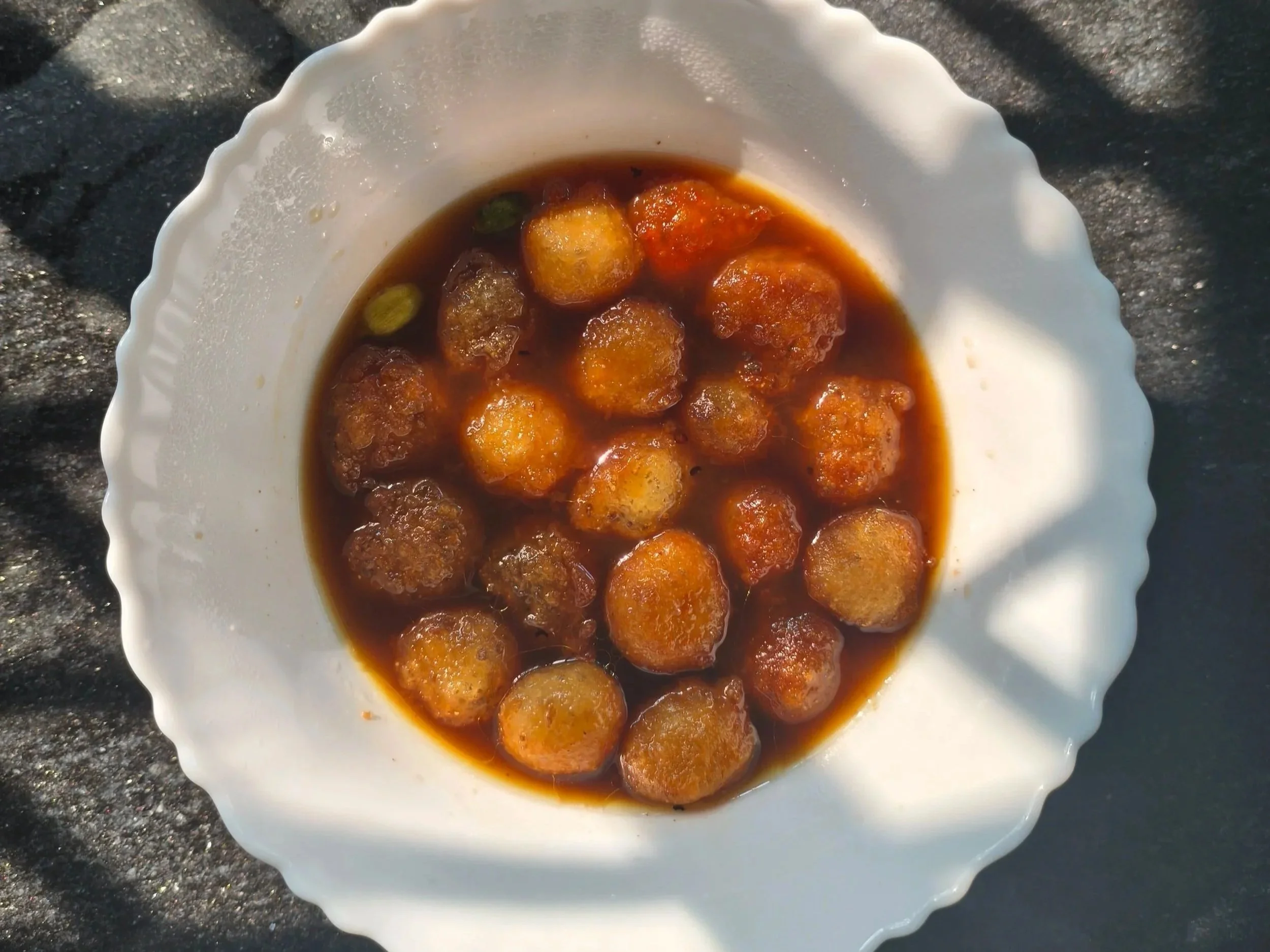
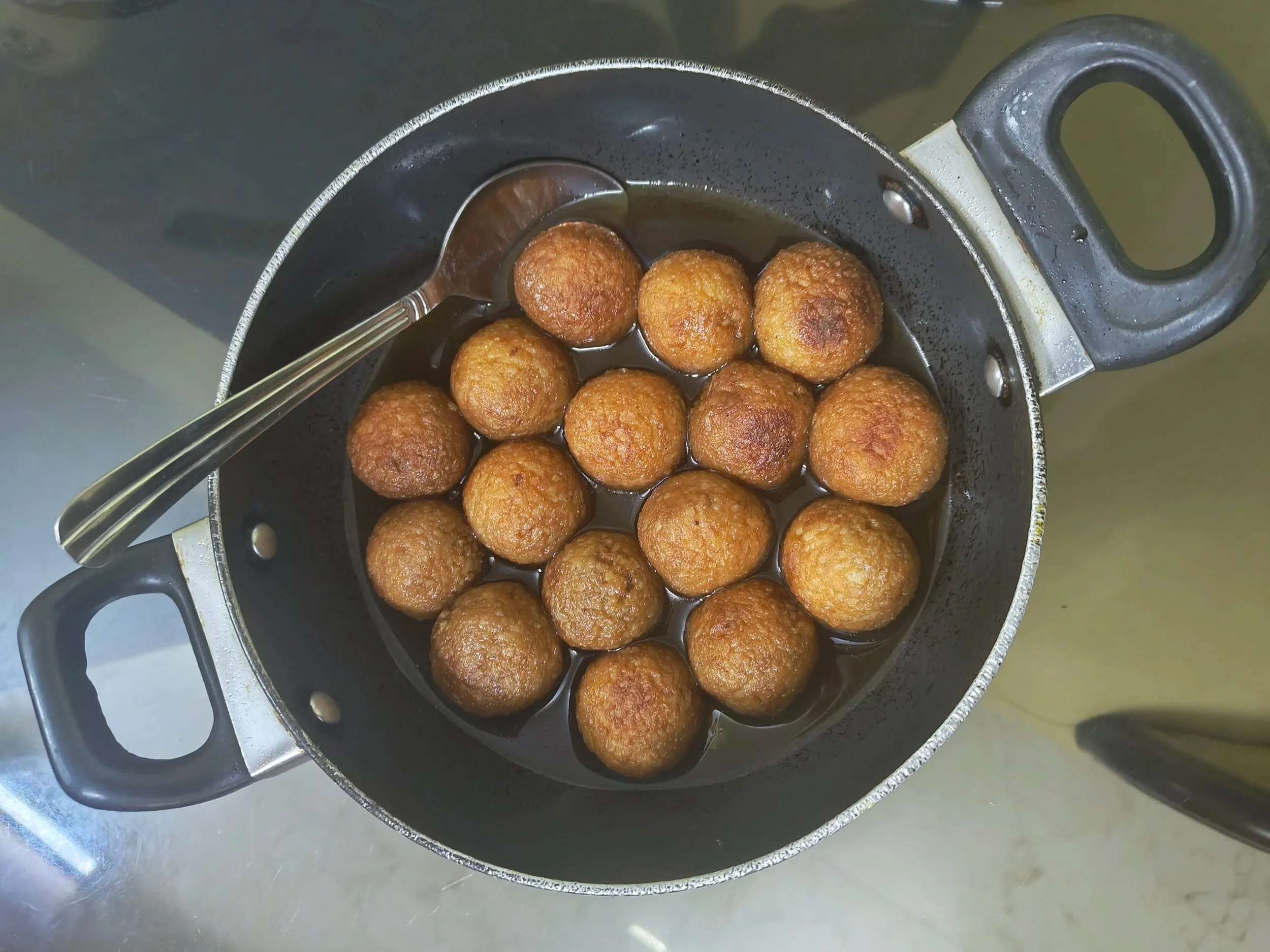

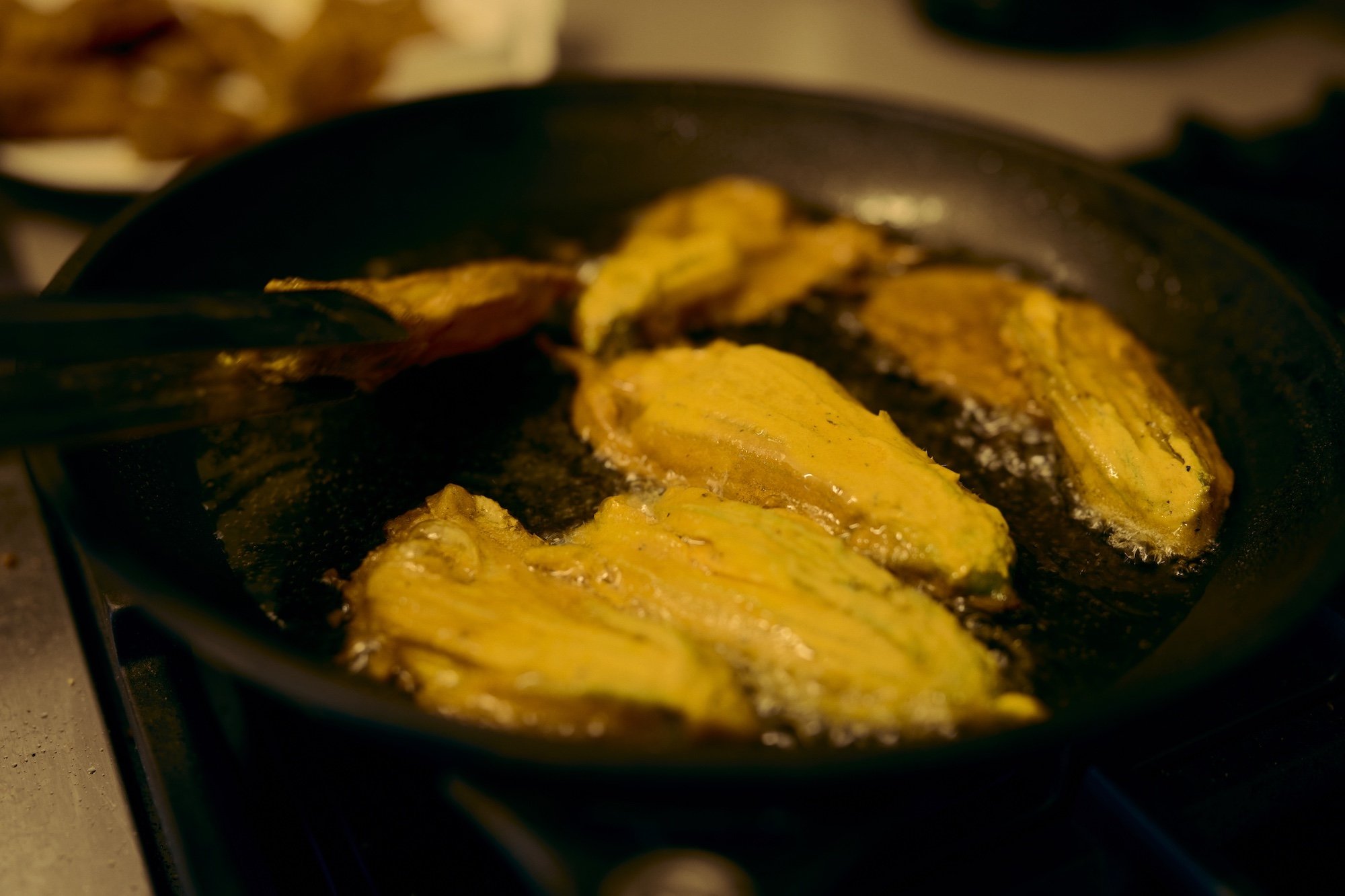
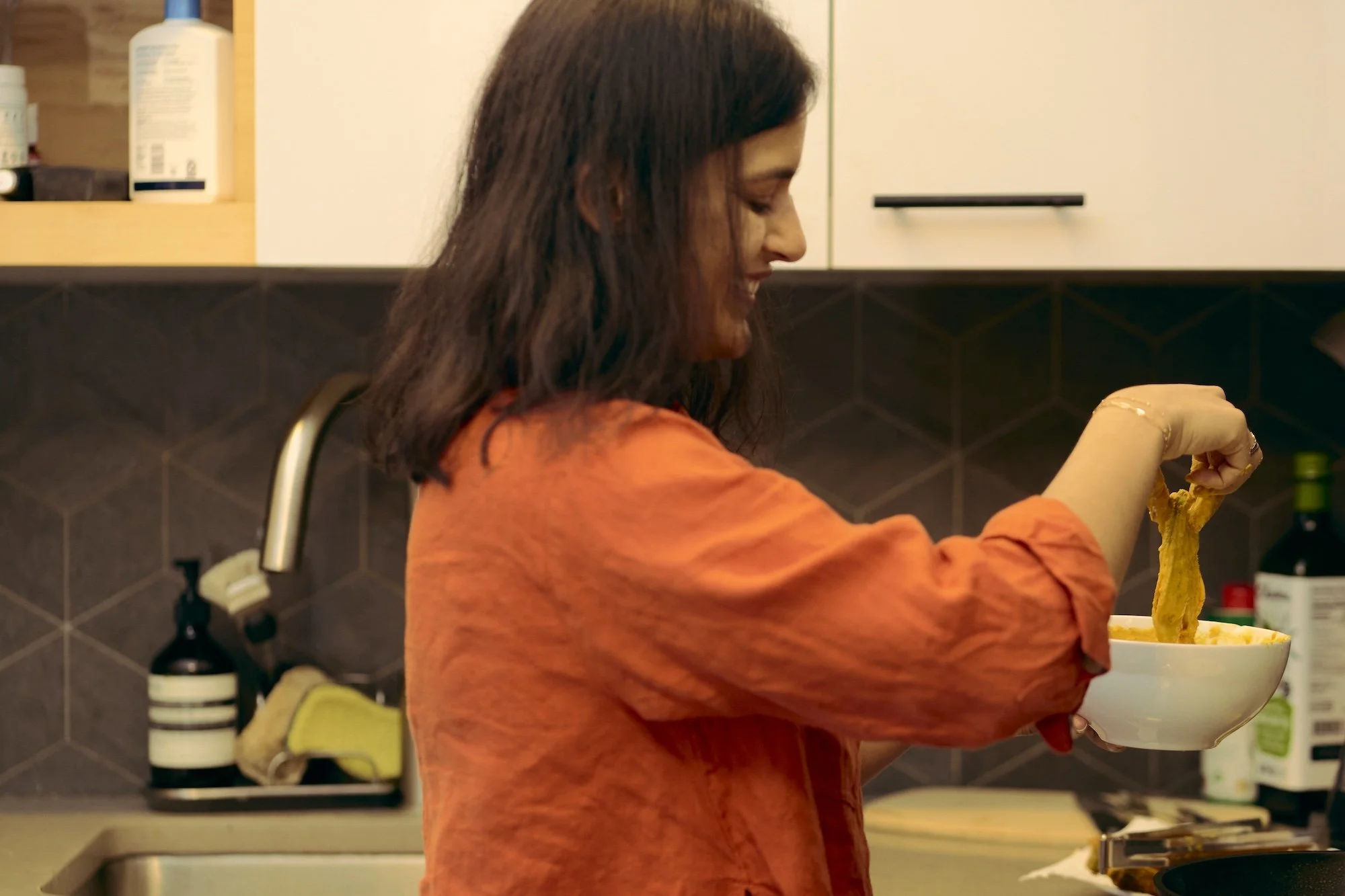
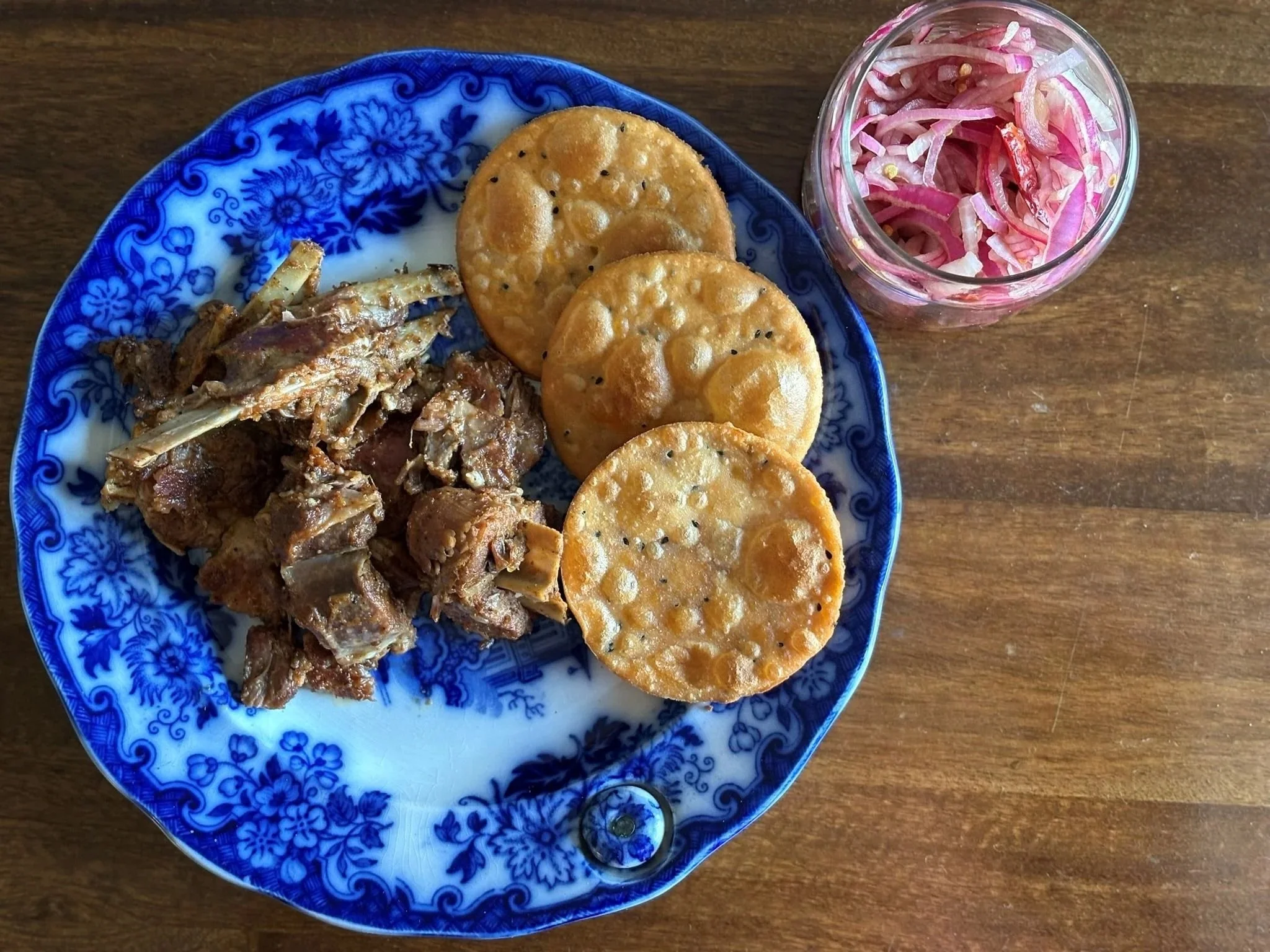

Neo-nomad cuisine of Central Asia | Terrence Manne